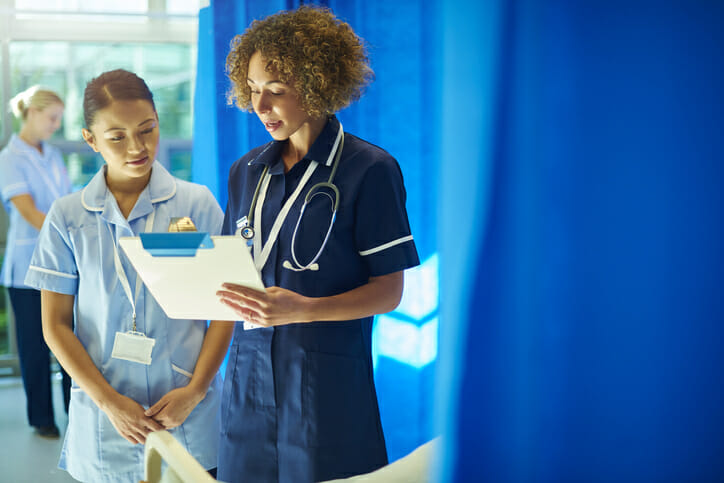
With integrated medical school curriculums on the rise, an early clinical placement in your medical school career is becoming increasingly common. Some medical schools introduce placements as early as the first year, when it can feel like you don’t know enough to be useful.
When made the most of, these an early clinical placement can be provide invaluable experiences for introducing you to clinical practice and helping you to start thinking about what you learn in lectures with patients in mind. Here are six tips for making the most of an early clinical placement at medical school.
1. Be prepared
Going into a clinical setting can be intimidating the first few times you have placements. Be prepared for whatever setting you are going into; whether that is a GP surgery, hospital ward or community clinic. Double check the address of the place and what time you start. Also, know who you are meant to be meeting and where, especially if you are at a large hospital. Ensure you leave early in case of any travel delays along the way!
Make sure you dress smartly but comfortably and can be ‘bare below the elbows’ if need be for your clinical placement. Looking the part will help you feel more confident and show your supervisor that you have made the effort. If you know what topic or area you will have teaching on, revise a little of what you know already. This will help you learn the more clinical stuff, if you have a good grasp of the basics.
2. Turn up
This sounds really silly, but turn up on time and stay for the allocated time of your clinical placement, unless your supervisor tells you otherwise. If you have early clinical placements they probably don’t comprise a huge part of your week or term.
It can be tempting at the end of a long week or term to leave early for some down time, but this is really important teaching you could be making the most of. If your placements are few and far between, use them to stay motivated for the mainly clinical years and get a head start on perfecting some clinical skills by turning up and participating for the full time available to you.
3. Ask questions
The doctor who is supervising you might seem a bit scary, especially if they are quite high up! The reality is that almost all of the clinical staff you meet are more than happy to help you and answer any of your questions. You will see so much stuff for the first time on your clinical placement, so don’t be afraid to ask as many questions as you can to improve your understanding (within reason)!
Ask about the things you see and take time to talk through what you have done with your supervisor if they have the time. It can be a useful opportunity to get some feedback and learn what to do better next time.
4. Say yes to opportunities
If opportunities are offered to you, say yes! Even if you don’t feel the most confident, opportunities such as taking a history from a patient or performing an examination are rare in early clinical placements. The clinical staff won’t leave you to your own devices; they will be around if you need any help or support. The sooner you start taking opportunities, the sooner you will feel comfortable talking to patients and performing examinations and procedures.
5. Get involved
Sometimes the staff on your clinical placement can be incredibly busy and opportunities may not be presented to you. This doesn’t mean that they aren’t willing to help you or give you the chance to get involved. Ask for the opportunities and learning experiences you want. Most of the time, people will be very accommodating and keen for you to get involved.
If you see that it is very busy, ask if there is anything helpful you can do. Perhaps you could get a patient some water or sit with a family member of a patient. Anything you can do to get involved will not only make the lives of the staff easier, but give you an experience of the variety of things that need doing day to day in the clinical environment.
6. Reflect on what you have learned
Reflection is something that you will learn as a medical student and will be expected to continue throughout your whole career as a doctor. Reflecting is an important process that can help you to process and truly learn from your experiences in the clinical environment.
Try to think about what went well and what didn’t go so well, and what you want to improve on for next time. Reflection can be quite a personal thing, almost like keeping a journal or diary. You can think about how you felt and how the staff and patients felt. This will help you to consider the impacts of your actions on others and help you to one day become a thoughtful and empathetic doctor.
An early clinical placement can be a great tool for learning if you go into the experience with a positive mindset and a willingness to make the most of the unique opportunity you have been given. Not every medical student gets to partake in clinical placements early on, so be sure to make the most of your time in a clinical environment.
Words: Safiya Zaloum
Applying to Medicine? Book a space on our Interview Course!
Book an Interview CourseRead more:
- Read Diaries of a Manchester Medical Student – Part One
- Read Medical School Insight: Life at King’s College London
- Read Six Ways to be Productive Whilst Waiting for Medical School Offers
